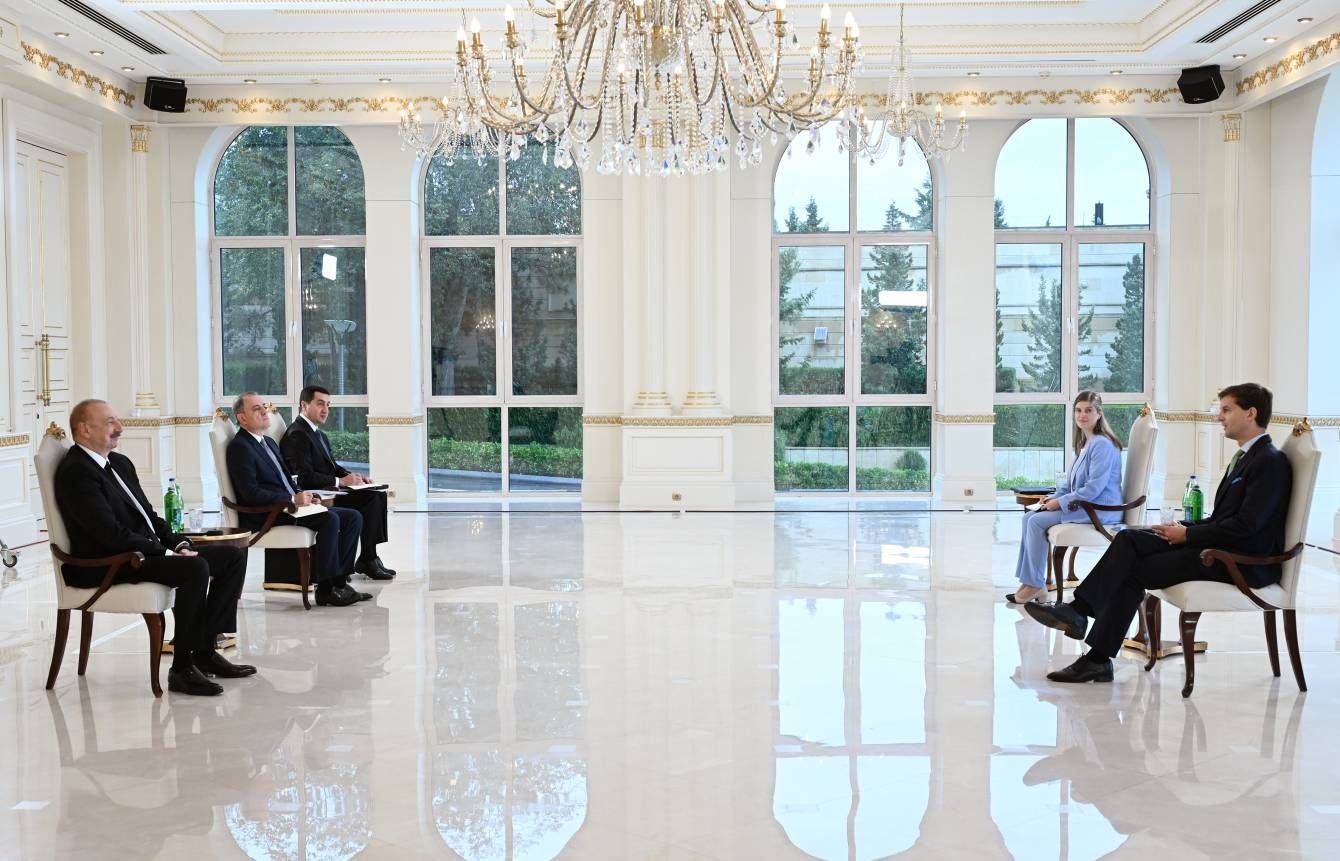|
|
TODAY.AZ / Analytics
Peace in name, disruption in practice: EU Mission's legacy in S Caucasus
18 October 2024 [20:00] - TODAY.AZ

By Akbar Novruz, Azernews
Diplomacy often comes with a delicate balancing act, but sometimes it slips into overt interference. The European Union’s monitoring mission in Armenia, touted as a peace initiative in the South Caucasus, seems to carry ulterior motives behind the scenes. Under the surface of their proclaimed neutrality lies a strategy that raises questions about the EU’s intentions and effectiveness in facilitating regional peace.
The EU mission arrived in October 2022, initially planned as a two-month deployment to monitor the Armenia-Azerbaijan border. However, what began as a temporary arrangement soon expanded into a long-term commitment. By December 2023, the EU Foreign Affairs Council approved an increase in personnel, from 138 to 209 members, allegedly to "strengthen" the mission. Yet, what followed was not a strengthening of peace but an injection of distrust, especially on the Azerbaijani side.
Azerbaijan has consistently warned that the mission must not serve as an excuse for Armenia to avoid honouring its commitments, particularly regarding border delimitation and normalisation. But the expansion of the mission has been seen as an intrusion rather than a solution—one that disrupts bilateral efforts and creates friction instead of fostering dialogue.
For instance, just a few days ago, Azerbaijani president Ilham Aliyev had underscored the EU’s ‘binocular diplomacy’ while receiving the credentials of the newly appointed Belgium ambassador. While emphasising Brussels as a key platform for the successful negotiations between Armenia and Azerbaijan, the head of state also touched upon the EU's policy in the region. Suggesting that the European Union should preserve neutrality in the Armenia-Azerbaijan peace process, which has always been the case, adding that the EU had never been active during the occupation period. The President pointed out that back then, numerous approaches to the EU and other European institutions were met with the response that the Minsk Group was responsible and that the EU had no involvement.

"However, the EU seems to be actively involved now. Unfortunately, we see that some figures in Brussels, at EU headquarters, have taken sides. This is counterproductive. It only creates mistrust and isolates the EU from the normalisation process. My recommendation, if I may offer this recommendation for the sake of continued cooperation between the EU and Azerbaijan, would be to avoid the footsteps of France and not to find themselves under France's influence, because France's policy has been absolutely destructive and remains absolutely destructive with respect to the Armenia-Azerbaijan normalisation process."
Furthermore, he stated that the behaviour of the members of this mission, the so-called binocular diplomacy, was absolutely unacceptable and was beyond any standards of normal political culture and Azerbaijan will continue to raise these issues in its communications with the EU:
“And the last point regarding the EU-Azerbaijan relationship, which has increased certain mistrust, was the way the so-called “European Observation Mission” on our border was prolonged without any agreement or even consulting with Azerbaijan. Why was it necessary?! Azerbaijan had agreed in October 2022 in Prague that the mission was supposed to stay for a couple of months with a limited number of retired military officers. However, when the mission was prolonged, they did not consult with us,” the Azerbaijani leader noted, adding that discussions are ongoing for further extension.
The EU’s actions have raised suspicions about its true intentions. Joint patrols conducted by the EU observers and Armenian military units signal the empowerment of Armenia’s revanchist factions. This, in turn, emboldens Yerevan to adopt an obstructive stance in negotiations while pursuing military rearmament. In essence, the EU’s involvement appears to serve Armenia’s strategic interests more than fostering peace.
Well, notably, it is claimed that Armenia had decided that they will not extend the mandate of the EU observer mission in the country for its further operations. If confirmed, this development would mark the mission’s end. However, with Armenia’s recent moves to distance itself from Russian influence, there is speculation that Yerevan might seek other international allies to fill the security gap. It is no coincidence that this news appeared shortly after the decision to leave the Russian army. As we have previously mentioned in one of our articles, this adjustment hints at Yerevan’s increasing inclination to limit Russian influence over its borders, a move that could be seen as paving the way for foreign (non-Russian) actors, potentially from the West, to fill the vacuum. So in short, one Western actor leaves, and the other substitutes it. However, the question remains: Will these new actors contribute to regional peace, or will they deepen divisions even further? Taking into consideration that one of the possible nominees is France, the first part of the question may age like milk.
Let’s hope our prediction turns out incorrect and Yerevan chooses to act as a party willing to sign a peace agreement. Because the South Caucasus does not need any external actors playing geopolitical chess—it needs genuine diplomacy and cooperation between the neighbours themselves.
URL: http://www.today.az/news/analytics/254177.html
 Print version
Print version
Connect with us. Get latest news and updates.
See Also
- 22 January 2026 [08:30]
How Azerbaijan turns energy wealth into long-term growth - 21 January 2026 [13:45]
Cooperation expands in Caucasus as conflict gives way to dialogue - 21 January 2026 [08:30]
Azerbaijan, BlackRock and the new geopolitics of infrastructure - 19 January 2026 [13:55]
Europe’s energy security boosted by Azerbaijani gas, not Russian supplies - 17 January 2026 [20:50]
Azerbaijan growing gas exports to Germany and Austria win for economy and diplomacy - 17 January 2026 [08:30]
Zangezur Corridor and Charaña parallel: Lessons from past transit disputes - 16 January 2026 [08:30]
Middle Corridor shows why process matters more than maps - 15 January 2026 [13:58]
Unrest in Iran sparks international warnings and diplomatic moves - 15 January 2026 [08:30]
How technical framework pushed Zangazur Corridor one step closer - 14 January 2026 [17:49]
Armenia takes control of its borders as old dependencies from Russia unravel [INTERVIEW]
Most Popular
 South Caucasus - from era of war to era of peace
South Caucasus - from era of war to era of peace
 President Ilham Aliyev meets with Prime Minister of Czech Republic in Davos
President Ilham Aliyev meets with Prime Minister of Czech Republic in Davos
 President Ilham Aliyev meets with President of Brookfield Asset Management in Davos
President Ilham Aliyev meets with President of Brookfield Asset Management in Davos
 President Ilham Aliyev meets with his Israeli counterpart in Davos
President Ilham Aliyev meets with his Israeli counterpart in Davos
 China cuts Russian oil imports in 2025 amid sanctions pressure and energy diversification
China cuts Russian oil imports in 2025 amid sanctions pressure and energy diversification
 President Ilham Aliyev meets with Chairman and CEO of J.P. Morgan in Davos
President Ilham Aliyev meets with Chairman and CEO of J.P. Morgan in Davos
 Presidential Library commemorates victims of January Tragedy
Presidential Library commemorates victims of January Tragedy
